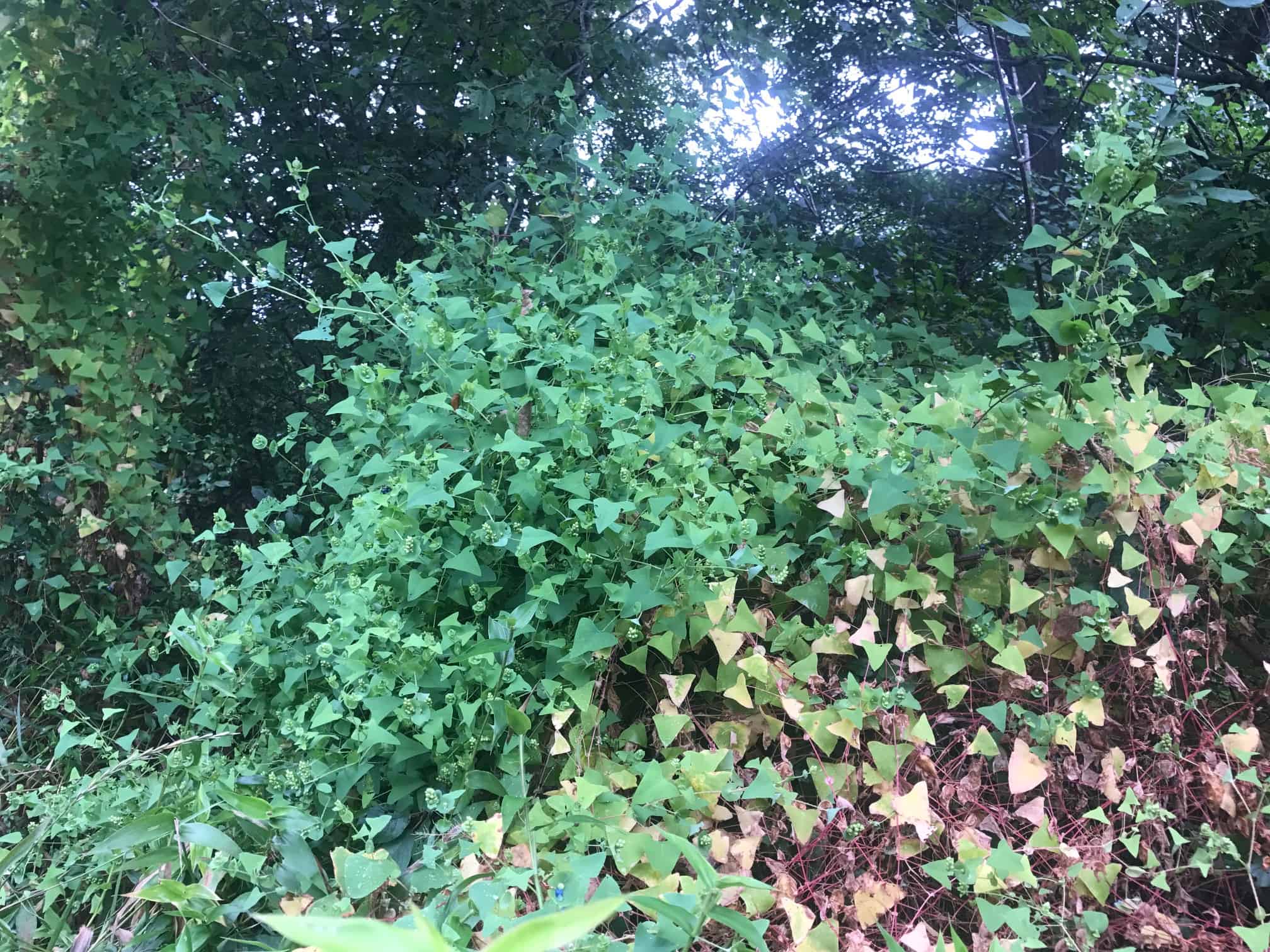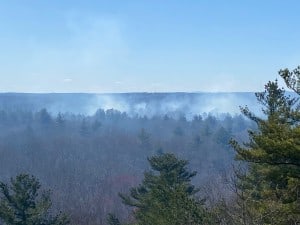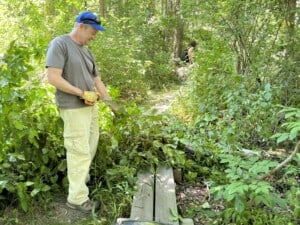Today you have a chance to better protect native habitats in the Blue Hills — and throughout the state.
There is currently a bill that is before the the Joint Committee on Environment, Natural Resources and Environment that would could help better control invasives in the Blue Hills — and statewide! The Invasive Species bill (H.999/S.563) would centralize state resources under one office, create a State Coordinator position to guide municipalities and non-profit organizations with best practices, and establishes a grant program to help fund eradication, prevention, and public outreach activities.
The Joint Committee on Environment, Natural Resources, and Agriculture has until Wednesday, February 2 to report bills out favorably – otherwise they don’t advance, and they will have to be re-introduced again next session… essentially starting from the beginning again.
In December, Friends of the Blue Hills joined partners like the Mass Rivers Alliance to testify in support of H.999 and S.563 before the Joint Committee on Environment, Natural Resources and Agriculture (ENRA). Now the legislators need to hear from YOU!
Here’s how you can help:
Call or email your state legislators this week and encourage them to talk to their ENRA colleagues about advancing these two bills. See below for sample letter and link to the Mass Rivers Alliance fact sheet on the bill.
See below for a sample letter and fact sheet.
If your legislator is on the Joint Committee on Environment, Natural Resources, and Agriculture, we especially need you to contact them directly. Here are the Committee members:
You can see House co-sponsors of the bill here… and Senate co-sponsors here.
Let us know when you contact your legislators… and let us know what they say!
Sample Letter
“Dear Representative/Senator ______,
My name is ___________ and I am a resident of ___________. I am writing to request that you urge your colleagues in ENRA to report favorably out of committee H.999/S.563, An Act responding to the threat of invasive species (sponsored by Senator Jehlen and Representative D. Rogers).
These bills strengthen protections for water quality and quantity statewide:
Current assistance and funding for municipalities and non-profits trying to manage invasive species is seriously lacking. The invasive species management bill centralizes resources, making it easier for municipalities and non-profits to access the guidance they need, and sets up a grant program to help fund prevention, eradication, and outreach work.
For example, a majority of the Blue Hills Reservation is considered priority habitat for endangered species. These endangered species, already struggling to survive a changing climate and dangerously low populations, face the additional pressure of invasive species that outcompete natives and destroy their habitat. When invasive species management plans expired, however, for several years there were not sufficient resources to develop a new plan and work through the complicated permitting process for managing invasives in endangered species habitat. During that time, invasives that were being controlled grew back, building the seedbed in the soil and harming the ecosystem.
[Add why healthy habitat in the Blue Hills is important to you.]
Please let me know if you will encourage your colleagues in ENRA to report this bill out favorably. Thank you for your time and consideration.
Sincerely,
_____________”
















